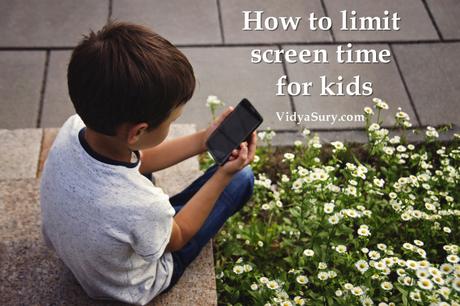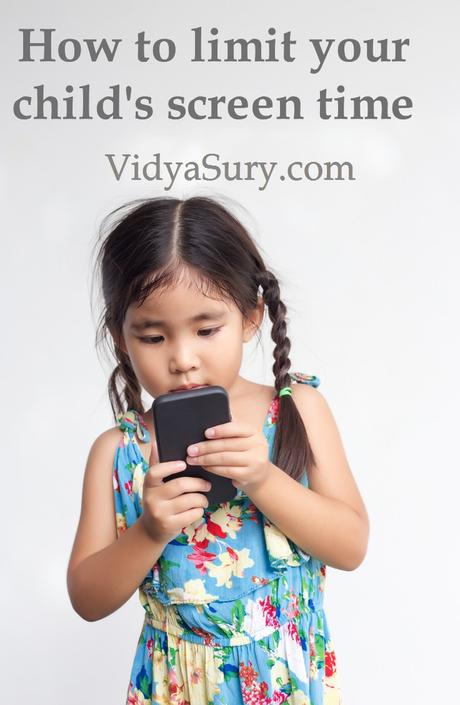
On a typical day, kids in the age group of 8-18 years enjoy at least 5 hours of screen time, sometimes more. Okay, usually more! Today, if we Google "kids screen time" there are hundreds of expert articles about why screen time should be limited for kids, and how too much screen time damages the brain. Clearly a warning to limit screen time for kids!
Children who watch too much TV, for instance, are at potential risk for the following:
- Childhood obesity, which comes with its own bunch of related serious health issues
- Aggressive behavior as a result of the content they see
- Risky behavior when they are older
- Less energy
- Trouble sleeping
- Social awkwardness
- Inability to focus in the classroom
- Tougher time with academics
- Overdose of information via commercials and other programming
- Missing out on opportunities for outdoor play and connecting with friends
With even babies knowing how to swipe a screen before they can talk, it is time to take action.
Luckily, when my son was a toddler, we hardly used the internet. But by the time he was 5, it had occupied a permanent spot in our lives. It was so easy to simply "log in", look for something and receive instant answers. Then, when our cell phones got smarter, it became even more addictive.
I don't know about you, but I've always marveled at how children are such quick learners with technology. I remember when we were young, there were always arguments about which show to watch on the one TV in the living room. Today, our children have lots more choice and many more screens they can carry with them and watch, on the go.

So how to limit screen time for kids?
After much brainstorming, here are some things we tried, with success.
- We did not buy my son his own phone or device until he was 17 and on the threshold of college. I know that sounds weird, but he was always within reach of a phone at school, and could call us whenever he wanted. His school was just 3 miles from where we lived.
- We did not have a TV in the bedroom. In fact, we did not encourage any electronics in the bedroom, except for the ancient alarm clock capable of waking the entire floor we lived in. We had two TVs and both were in common areas in the house where we could keep an eye on the shows he watched, making sure it was age appropriate. When he started using a computer, we kept track of which websites he visited, besides enabling the browser's safety features.
- We spent time together as a family. We had dinner together and did not take phone calls during meal times. We played games that involved face-to-face interaction and no devices. At most, we used paper and pencil to write. We walked together every evening and shared the day's happenings. We went on weekend trips and picnics and spent time outdoors. We are fortunate to have a lake nearby that's a pleasure to spend time at.
- We kept track of our own device use, as we wanted to set a good example. Luckily, neither my husband nor I are attached to our phones and this helped.
- We made rules that all of us followed. These included what time we would switch off the TV and computer, and we stuck to this diligently. This is easier than having those daily arguments. Some of our friends found this complicated to handle and simply solved the problem by cutting out the cable TV. Perhaps the tough one here is when they go on play dates and see different rules in different households. "How come they..... when we ....." was a standard question we tackled. We saw this as a good chance to explain why we did things differently.
- We encouraged our son to explore his interests quite young, and found he had an aptitude for art and music. He started going to a music school at the age of 8 and loved it. He enjoyed books, writing and delighted us with imaginative stories and poems. It is so important to have other options available so that kids don't have to feel lost if the screen is taken away from them.
As I mentioned earlier, perhaps the most important tip is to set the example and model the behavior we want to see. It is easy for children to slip into the same habits they see their parents follow. And once you set rules, of course some of their friends will find it odd that they are not up to date with what is happening with the current favorite show, but that really is okay.
Today, there are several apps that help with parental control to limit screen time.
Ironically, my son continues to enjoy free time listening to music or singing, writing screenplay scripts using a spirally bound notebook and pen, and writing poems. No addiction to games on the phone. No social media madness.
I would be the first to acknowledge that technology is marvelous, but it comes at a cost, the cost of our children's health. But why pay the price? Why raise kids who won't look up from their phone when you talk to them?
Do you limit your kids' screen time in your family? How do you do it?Do share in the comments.

